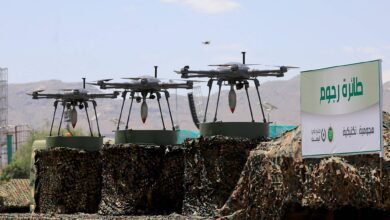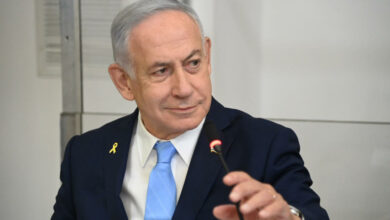
Opposition forces in Syria are holding talks aimed at taking formal control of the country as a broad offensive has yielded significant territorial gains, including the capture of Damascus and the overthrow of long-time President Bashar al-Assad.
Opposition leader Ahmed al-Sharaa, also known as Abu Mohammed al-Julani, met with outgoing Prime Minister Mohammed al-Jalali on Monday to discuss the transition of power. Al-Jalali, who previously served under al-Assad, has agreed to hand over authority to Hayat Tahrir al-Sham’s Syrian Salvation Government. “We are working to ensure the transitional period is quick and smooth,” al-Jalali said.
The new transitional government is expected to be headed by Mohammed al-Bashir, a close associate of HTS and the head of the SSG based in Idlib. Geir Pedersen, the United Nations special envoy to Syria, stressed that the transition process must be able to preserve continuity for Syria’s institutions so as to enable the population to “chart the path to meeting their legitimate aspirations and restore a unified Syria.”
The new government will prioritize consolidating control over the newly acquired areas, restructuring the governmental institutions, and facilitating the return of Syrian exiles and internally displaced persons, said Stephen Zunes, a political professor at the University of San Francisco.
The rapid advance of HTS-led opposition forces marks a key turn in the 13-year-long civil war, which has so far claimed hundreds of thousands of lives, created one of the largest refugee crises in modern history, and left cities in ruins amid massive economic sanctions.
Throughout his term in office, al-Assad faced accusations from human rights groups due to brutal crackdowns that involved killings, torture, enforced disappearances, and gassings of civilians.
“People are wondering what the new order will look like,” Al Jazeera’s Resul Serdar reported from Damascus, citing the possibility of a divided opposition that may result in intense political maneuvering. “Security is one of the main concerns,” he added, referencing recent Israeli attacks that have targeted military sites and pose significant challenges.
In charting a new course, HTS, which had been affiliated with al-Qaeda, has sought to soften its hardline approach, granting amnesty to soldiers who served under al-Assad and promising protection for religious minorities. But the new leaders have also pledged to pursue “just retribution” against top military and security commanders accused of war crimes.
“We will not hesitate to hold accountable the criminals, murderers, and officers involved in torturing the Syrian people,” al-Sharaa declared, promising rewards for information on those responsible for past abuses.
This moment has been called “a historic new beginning for the Syrian people who have endured unspeakable violence and atrocities these past 14 years” by the UN Commission of Inquiry on Syria. The commission underscored that any atrocity committed must not be allowed to happen again.
Agnes Callamard, Secretary-General of Amnesty International, said the need for justice like, “The most important step is justice, and not retribution.”



